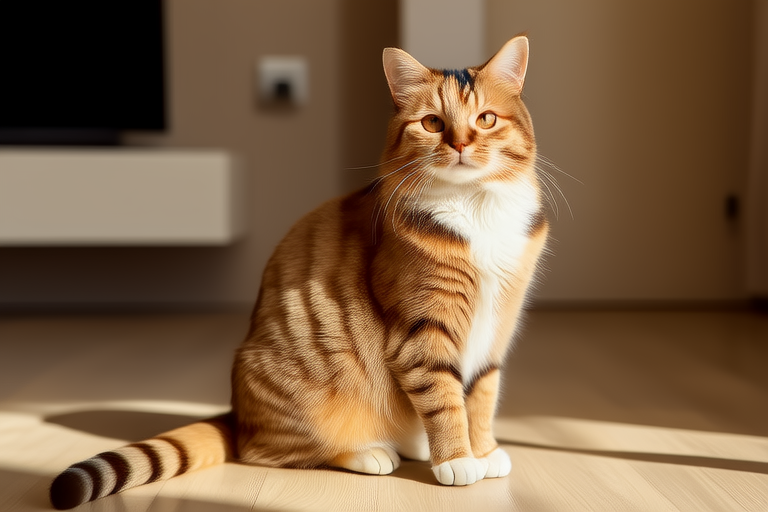How to Care for Your Abyssinian Cat Like a Pro
Welcome to your ultimate guide on how to care for your Abyssinian cat like a pro. These unique and energetic felines require special attention to thrive. From understanding their distinct traits to ensuring they live a long and healthy life, this article will cover all aspects of Abyssinian cat care.
Unique Characteristics of Abyssinian Cats
Abyssinian cats are known for their striking appearance and high energy levels. They have a sleek, muscular build with a short, fine coat that comes in various shades. Their large, almond-shaped eyes give them an alert and intelligent expression. Abyssinians are also very vocal, often communicating through a variety of chirps, trills, and meows.
These cats are incredibly curious and active, always exploring their surroundings. They are social creatures that enjoy interacting with their human companions and other pets. Abyssinians are also highly intelligent, which means they can be trained to perform simple tricks or respond to commands.
Essential Dietary Needs and Feeding Tips
Abyssinians are obligate carnivores, meaning their diet should primarily consist of meat-based proteins. High-quality commercial cat foods, both wet and dry, are excellent options as they provide balanced nutrition. Ensure that the food you choose meets the nutritional requirements set by organizations like the Association of American Feed Control Officials (AAFCO).
Feeding your Abyssinian cat multiple small meals throughout the day can help manage their energy levels and prevent overeating. Fresh water should always be available, and it’s important to monitor your cat’s weight to avoid obesity, which can lead to health problems.
Consult with your veterinarian to determine the appropriate portion sizes based on your cat’s age, activity level, and overall health. Avoid feeding them table scraps or human food, as these can cause digestive issues or other health problems.
Optimal Grooming Routines
Abyssinian cats have a short, fine coat that requires minimal grooming. However, regular brushing helps remove loose hair, prevents matting, and spreads natural oils across the fur, keeping it shiny and healthy. Use a soft-bristled brush or a rubber grooming glove to gently brush your cat once or twice a week.
Bathing is generally unnecessary unless your cat gets into something particularly messy. If you do need to bathe your Abyssinian, use a mild, pH-balanced shampoo specifically formulated for cats and ensure thorough rinsing to remove all soap residue.
In addition to grooming, it’s essential to keep your Abyssinian’s nails trimmed. Overgrown nails can cause discomfort and may lead to issues like ingrown claws. You can trim their nails yourself using cat-specific nail clippers or take them to a professional groomer if you’re unsure.
Exercise and Play Recommendations
Abyssinians are naturally athletic and playful, so providing ample opportunities for exercise is crucial for their physical and mental well-being. Interactive toys, such as feather wands or laser pointers, allow you to engage in play sessions with your cat, strengthening your bond while encouraging physical activity.
Set up climbing structures or shelves to satisfy their desire to explore and climb. Puzzle feeders or treat-dispensing toys can also stimulate their minds, challenging them to think and solve problems. Regular playtime not only keeps your Abyssinian entertained but also helps maintain a healthy weight and reduces the risk of behavioral issues.
Health Issues Common in Abyssinians and Preventive Care
While Abyssinian cats are generally healthy, some genetic predispositions can affect their well-being. Periodontal disease, a common issue in many cat breeds, can be prevented by maintaining good oral hygiene. Brush your cat’s teeth regularly using a pet-safe toothpaste and consider dental chews or treats designed to promote oral health.
Another condition to watch out for is renal amyloidosis, a disorder that affects the kidneys. Regular veterinary check-ups can help detect early signs of kidney disease, allowing for prompt treatment. Additionally, Abyssinians are more prone to certain genetic disorders, such as progressive retinal atrophy, a degenerative eye disease. Genetic testing can identify carriers and affected cats, helping breeders make informed breeding decisions.
To ensure your Abyssinian remains healthy, schedule routine veterinary visits, including annual wellness exams and vaccinations. Maintain a clean living environment, provide fresh water, and monitor your cat’s behavior for any changes that could indicate illness.
Tips for Creating an Enriching Environment
Creating a stimulating environment is essential for your Abyssinian’s happiness and well-being. Provide scratching posts made from materials like sisal or corrugated cardboard to satisfy their natural urge to scratch. Position these posts in areas where your cat spends most of their time.
Offer a variety of perches and resting spots at different heights to encourage exploration and vertical space utilization. Consider adding interactive toys or puzzle feeders to keep your cat mentally engaged. Rotate these items periodically to prevent boredom and maintain interest.
Ensure your Abyssinian has access to safe outdoor spaces if they enjoy spending time outside. A securely enclosed yard or a harness and leash can provide supervised outdoor experiences. Always supervise outdoor activities and consider safety measures such as microchipping and identification tags.
Advice on Training and Socialization
Training your Abyssinian cat can be both fun and rewarding. Positive reinforcement techniques, such as offering treats or praise for desired behaviors, work best. Teach basic commands like ‘come,’ ‘sit,’ and ‘stay’ using consistent hand signals and verbal cues.
Socialization is equally important, especially during kittenhood. Expose your Abyssinian to different people, animals, and environments to help them become comfortable and confident. This can reduce anxiety and aggression in adulthood. Encourage gentle handling and interaction with family members and friends to foster a friendly and sociable personality.
If your Abyssinian exhibits unwanted behaviors, such as scratching furniture or inappropriate elimination, address these issues promptly and consistently. Redirect their attention to appropriate outlets and reward them for choosing the right behavior.
Caring for an Abyssinian cat requires dedication, but the rewards are immeasurable. By understanding their unique needs and providing proper care, you can ensure your Abyssinian lives a happy, healthy, and fulfilling life. Enjoy the journey of raising this incredible breed!
